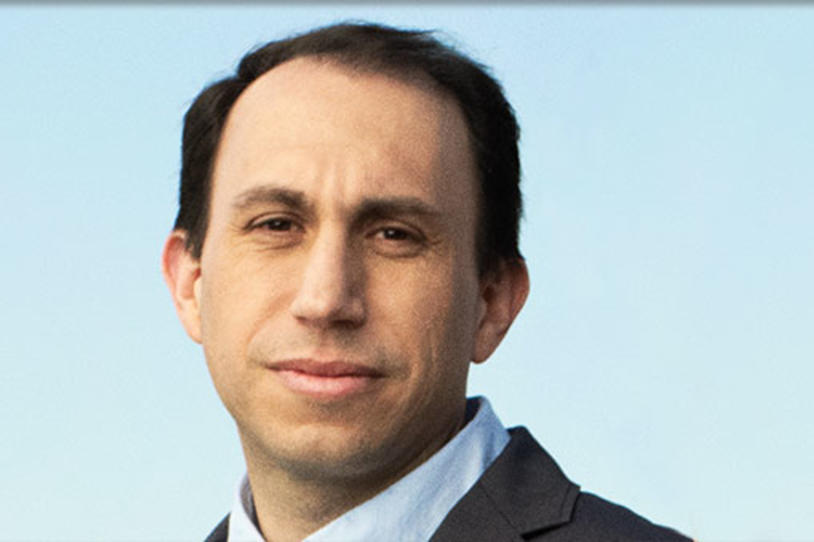
In 2012 we saw significant progress and change in Parkinson’s disease research, despite a climate of insufficient funding. Through the generosity and participation of so many in the Brin Wojcicki Challenge, we are gaining momentum.
Systemic challenges such as governmental budgetary constraints, low risk tolerance from private investors, high clinical trial costs, and non-standardized trial methodology continue to hang over the field. But thanks to patients and supporters like you, our Foundation is spearheading innovative, proactive solutions to the hurdles that stand in the way of bringing new drugs to market.
In September, I was honored to be appointed to the advisory council for the National Center for Advancing Translational Sciences (NCATS), a nascent National Institutes of Health (NIH) initiative. Importantly, it’s the first U.S. agency exclusively dedicated to fostering translational research. Last spring, I testified before Congress on the need for NCATS funding and lessons learned from our patient-centric model to speed translation. Also in September, I was invited by the Presidential Council of Advisors on Science and Technology to be part of the release of their recommendations to the President on cooperative efforts around drug development.
The field has uniformly admitted that we have a drug development crisis on our hands — we must do things faster, smarter and more collaboratively. And we must be more cost-effective in our strategies. As we have always believed at MJFF, patients should not have to wait years for relief.
I’m cautiously optimistic that federal efforts are finally under way to improve government capital allocation and research efficiency, and that such improvements could accelerate the development of new treatments across all diseases in the long run.
But even as we herald these government shifts, MJFF cannot — and will not — slow our pace. We continue our aggressive work to accelerate the development of PD treatments. In 2012, we witnessed key successes from our “doing whatever it takes” strategy, which will continue to drive forward critical projects in 2013:
- As you read earlier this week, Jeff Conn, PhD, and colleagues at Vanderbilt University announced a substantial partnership with Bristol-Myers Squibb (BMS) to move a new symptomatic treatment for PD closer to patients. MJFF has supported Conn’s work targeting the glutamate system since 2005, and our sustained high-risk investment garnered the relevant data to entice BMS to bring the program through clinical development. The partnership marks an additional major industry player that has entered the PD drug development arena. Conn is hopeful his drug candidate could enter the clinic as soon as this coming year.
- The MJFF-led Parkinson’s Progression Markers Initiative — launched in 2010 — continues to produce results, showing that productive collaboration is possible if someone is willing to take the lead. Working with 12 partners from the pharmaceutical industry to find biomarkers for PD, significant investments to improve participation are bearing fruit, as enrollment is nearly complete. Data made available to researchers worldwide has been downloaded over 30,000 times. In the year to come, we plan to expand upon findings from PPMI into new efforts studying at-risk populations for PD. (Read more here.)
- The MJFF initiative to put laboratory tools into the hands of as many researchers as quickly and inexpensively as possible is also showing impact. Today, seven MJFF-owned pre-clinical models are available at low or no cost to researchers who need them for promising PD drug development studies — and this number will more than double by May 2013. To date, these models have been distributed more than 2,750 times.
- Fox Trial Finder, our Web-based portal unveiled in 2011 to address the challenge of participant recruitment for clinical studies, surpassed our launch goal of 10,000 registrants. This is already translating into results, as clinical trial coordinators have reported a critical boost in recruitment activity. Our new goal is to reach 15,000 volunteers by year-end and 25,000 in 2013. Become one of these volunteers to get new therapies into patients’ hands — complete your profile today at foxtrialfinder.org.
These are just a few examples of the important impact that all of us, working together, can make in accelerating PD therapies. But we are not done. We have ambitious plans for 2013 — to continue to translate a growing knowledge of PD genetics into treatments, to develop ways to identify people before they get PD, to engage with industry players to keep them focused on PD, and to launch an ambitious initiative to expand the role patients can play in providing answers to critical research questions. Next year alone, we are striving to fund $60 million in research.
As always, I am grateful for your dedication to our mission. We are seeing clear progress, but this is not the time to take our foot off the pedal. I’m excited by the distance we have come, and energized by where we will be — thanks to your continued commitment to be part of the answer.
The $50-million Brin Wojcicki Challenge ends this month, and we need your help to raise the final few million. Your willingness to step up today has never been more important — to the
Foundation and Parkinson’s patients everywhere.
I hope we can count on you to help us leverage these gains in 2012 and make groundbreaking opportunities in PD research a reality.
